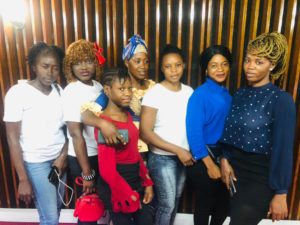Our Work
Our work focusses on promoting gender equality through the provision of free quality education to vulnerable Out-Of-School Children, Youth and marginalized adolescent girls and boys with school enrollment, academic materials and school charges especially, teen moms. We believe education can make children and young people less susceptible to the influence of others, thereby creating an environment where social justice can thrive such as equal justice, equal opportunities and equal treatment.
YOMSUD-SL
PRIORITIES
Youth Movement for Sustainable Development Sierra Leone (YoMSuD-SL) prioritizes the below major and emerging issues believed to be the existing problems in every countries in the globe.
As YoMSuD-SL does not only focus on the youth of Sierra Leone but also targeting Africa and the globe entirely it major goals are part of the Sustainable Development Youth Goals at end we will be able to translate the UNSDGs into every rural communities in Sierra Leone, Africa and the Globe.
YoMSuD-SL Priorities are in line with the United Nations Sustainable Development Goals (UNSDGs);
Goals 1,2,3,4, 5 & 13


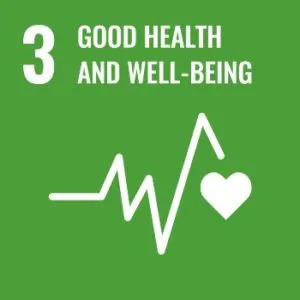



OUR PARTNERS


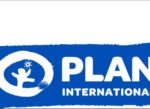
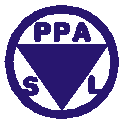
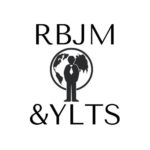

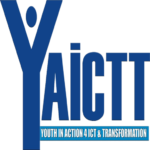
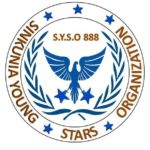
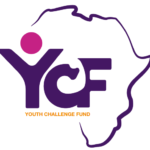
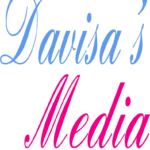
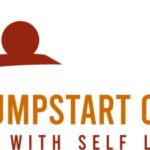
Reach out to our partnership team to become our partner via email: info@yomsudsl.org

Stakeholders and Community Engagement on Sexual and gender-based violence (SGBV) & Adolescent Sexual and Reproductive Health and Rights (ASRHR) to Promote Gender and Climate Justice
Our organization actively engages stakeholders and local communities to raise awareness about Sexual and Gender-Based Violence (SGBV) and Adolescent Sexual Reproductive Health and Rights (ASRHR). We organize town hall meetings, workshops, and dialogues with traditional and religious leaders, local authorities, community members, boys and girls, parents, teachers, and youth groups. These engagements are key to fostering discussions around gender and climate justice, addressing harmful cultural practices, and advocating for the rights of marginalized groups, particularly women and girls. By collaborating with these stakeholders, we work to create a safe environment where survivors of SGBV are supported, and gender equality is promoted within the context of sustainable development and climate justice.
YoMSuD-SL Collaborates with Community Schools to Form School Health Clubs (SHC) and Train Adolescent Girls on SGBV and ASRHR
Our partnership with community schools aims to form School Health Clubs (SHC) where adolescent girls are trained on SGBV and ASRHR under the theme “My Body My Right.” In Falaba and Bo Districts. These clubs provide a platform for girls to gain knowledge about their rights, bodily autonomy, and reproductive health. We offer workshops that empower them to stand against SGBV and make informed decisions regarding their health and well-being. Through peer education and support, these clubs serve as safe spaces for girls to share experiences and learn how to advocate for gender equality and reproductive rights, creating a ripple effect of positive change in schools and communities.


Empowering Girls Through Technology: Using Digital Tools in the Fight Against Sexual and Gender-Based Violence (SGBV)
Our digital empowerment initiative equips girls with essential digital literacy skills to combat SGBV. Through training in using mobile apps, online platforms, and digital reporting systems, we enable girls to safely report incidents of SGBV and access vital resources. By integrating technology into our gender equality efforts, we enhance girls’ ability to raise awareness and advocate for their rights. These digital tools provide a powerful avenue for sharing their stories, connecting with support networks, and creating online communities of solidarity in the fight against SGBV.
ASRHR Awareness Campaign in Sinkunia Chiefdom, Falaba District: Reaching More Rural Communities
YoMSuD-SL ASRHR awareness campaign in Sinkunia Chiefdom, Falaba District focuses on reaching rural communities with limited access to reproductive health services and education. Through community outreach programs, radio talk shows, and youth-led workshops, we engage with local populations to raise awareness about reproductive health rights, preventing teenage pregnancies, and the importance of gender equality. This campaign addresses misinformation and taboos surrounding ASRHR and empowers adolescent girls and boys to make informed decisions about their health. Our efforts in Falaba aim to reduce SGBV and promote gender equality in these underserved communities.


Our Mentorship and Coaching Programs
YoMSuD-SL mentorship and coaching programs connect young girls with experienced mentors who provide guidance on education, career development, and personal empowerment. The program offers one-on-one support to help girls navigate challenges such as school retention, family pressures, and SGBV. Mentors act as role models, helping participants build confidence, set goals, and pursue their aspirations. Through workshops and group sessions, we foster leadership and resilience, ensuring that girls are equipped with the knowledge and skills needed to succeed in their personal and professional lives.
Our STEM Scholarship Opportunities to Teen Moms
Our scholarship initiative supports teen moms by providing opportunities to pursue education in STEM (Science, Technology, Engineering, and Mathematics) fields. We believe that investing in STEM education empowers these young women to break the cycle of poverty and discrimination. Additionally, we work to enroll out-of-school vulnerable children, including marginalized and disadvantaged youth, into community schools with full academic support. This program ensures that no child is left behind, offering them a second chance to gain an education and improve their future prospects, contributing to long-term gender equality and community development.


Graduation Ceremony of Our Digital Literacy Cohorts
The graduation ceremony of our digital literacy cohorts celebrates the achievements of young girls who have completed our digital literacy training. This milestone event recognizes their hard work and dedication to acquiring digital skills, which are essential in today’s technology-driven world. These graduates are equipped with the knowledge to leverage technology for personal and community development, as well as to combat SGBV. The ceremony serves as an inspiration to other girls in the community, showcasing the potential of digital literacy in empowering women and promoting gender equality.
OUR SERVICES
EDUCATION
THE PROBLEM
ACCORDING TO UNICEF REPORT ABOUT EDUCATION
More than half of 15 year-olds and above (57%) are illiterate and half of those leaving primary school here in Sierra Leone are unable to read or write. The Government faces a number of ongoing systemic challenges. Teacher quality is wanting, Just 61% of primary school teachers are trained and, across the entire teaching workforce, nearly one third are unqualified and more than half are not on the government payroll.
These issues are compounded in rural areas where there are higher numbers of unqualified and volunteer teachers. The impact is reflected in low learning outcomes and poor exam results.
According to a study by UNFPA, 14,000 teenage girls became pregnant during Ebola and, in some communities, adolescent pregnancy increased up to 65%.When schools reopened, they were banned from returning under a GoSL directive preventing visibly pregnant girls from attending school or taking exams.
The lack of awareness in Falaba district on the importance of education and poverty coupled with gender, long distances to schools, families holding onto their cultural and traditional beliefs, marginalizing certain minority ethnic groups, discrimination, physical appearance to name but few are making things more impossible for majority of the children in this region to access quality education.
QUALITY EDUCATION – Sustainable Development Goal 4 ( SDG 4)
In 2019, of those students who sat exams, 76% passed the NPSE; 57% passed the BECE; and just 26% passed the WASSCE, of whom just 6% qualified for entry into degree programmes. Educational challenges have been exacerbated by external shocks. Even before Ebola, in 2013, 28% of girls aged 15–19 had already begun childbearing, leaving
Sierra Leone ranked 10th highest in the world for adolescent pregnancy, and nearly 3 out of every 10 girls out-of-school are excluded from education.
When Ebola hit and schools closed for nine months, adolescent pregnancy spiked and girls experienced higher dropout rates as a result of pregnancy, domestic violence, and sexual abuse.
- This data also demonstrates the significant under-representation of girls at SSS level
(GER of 54.5% for girls against 58.5% for boys; difference of 4%), compared to other
levels where GER for girls is either at parity with or higher than boys. - District Gross Enrolment Rate (GER) JSS SSS
- Bo JSS => 87% SSS => 60%
- Bombali JSS => 94% SSS => 76%
- Bonthe JSS => 58% SSS => 36%
- Falaba JSS => 31% SSS=> 10% (Our target district)
- Kailahun JSS => 47% SSS => 30% (Our target district)
- Kambia JSS => 75% SSS => 40%
- Karene JSS => 60% SSS=> 23%
- Kenema JSS => 85% SSS => 65%
- Koinadugu JSS => 67% SSS => 44%
- Kono JSS => 82% SSS => 49%
- Moyamba JSS => 59% SSS => 22%
- Port Loko JSS => 86% SSS=> 45%
- Pujehun JSS => 30% SSS => 10% (Our Traget District)
- Tonkolili JSS => 67% SSS => 37%
- Western Area Rural JSS => 113% SSS => 94%
THE SOLUTION
What we want to do.
- Recruit 2000 marginalized adolescent mothers from economically disadvantaged background in Falaba district
- Register them into Community Based Secondary Schools
- Train them on accountability, roles of girls in nation development, Leadership roles (To prepare them for leadership positions and decision making in their communities’ leadership and country’s politics and even beyond)
- After school, capacity building training based on their talent areas
- Give them full academic support such as school materials and school charges
- Provide them free mentorship program to prepare them to become leaders and entrepreneurs
PROJECT OUTCOME
In the next 10 years, YoMsuD–SL is looking forward to reduce the percentages highlighted earlier within the Falaba – Kailahun and Pujehun district and also ensure that the sustainable development goal 4 is achieved within these district and beyond by 95%.
Nevertheless , we want to see these beneficiaries partake in societal development and help change the mindset of the people that all children deserve a quality education either formally or informal.
BENEFICIARIES
- School Drop outs
- Teenage Mothers
- Sexually Abused Adults
- Disables
- Pupils or Adults from Poor Financial Backgrounds
WHAT WE WANT
To undertake such project , YoMsuD – SL is looking to the following :
- Donors
- Partnership
- Finance
PICTURES


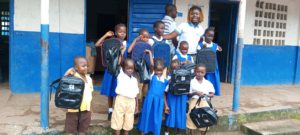

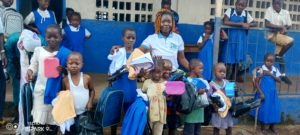


AGRICULTURE
THE PROBLEM
UN Secretary-General António Guterres considers the collision of gender inequality with the global climate crisis to be “the greatest sustainable development challenge” of our time. Addressing this challenge is especially important for fighting hunger, malnutrition and poverty in low-income countries.
According to the UN Women Africa, Women represent 70 percent of the agricultural labor force of Sierra Leone and they play an important role in natural resource management and food production.
THE SOLUTION
We want to give women equal access to farming resources, close the gender gap in access to digital technologies and data gap on women in agriculture, finally ensure that women farmers are equal partners in developing strategies for adapting to climate change.
PROJECT OUTCOME
ULTIMATE RESULTS
- Reduced sufferings in rural communities experiencing acute poverty, food insecurity and economic instability due to climate change and gender inequality impacts.
- Enhanced improved food, nutrition and economic security in food insecure rural communities.
- Increased economic and human rights freedom of marginalized women,girls,boys and men
- Enhanced nutrition rich foods availability all-round the year thereby ending malnourishment for under five children, women, girls and boys in Northern Sierra Leone.
INTERMEDIATE RSULTS
- Increased use of business development and financial services by establishing micro enterprises after harvesting by the Smallholder women farmers.
- Enhanced protection of the rights of the minorities, beneficiaries,marginalized boys,men, women and girls’ sexual exploitation and abuse in Northern Sierra Leone.
- Enhanced natural resource management and conservation with sound environmental sustainability among the smallholder women farmers and their communities.
IMMEDIATE RESULTS
- Increased ability of women smallholder farmers and health workers to address the nutrition challenges of women, children, men and less privileged 2. Improved knowledge of sustainable agricultural-production practices especially organic farming that is environmentally friendly among women smallholder farmers in five rural communities to foster communities’ climate change solutions and adaptability in Northern Sierra Leone.
TARGET BENEFICIARIES
Targeted groups are marginalized women, men, widows, orphans underrepresented groups, ethnic minorities, and those culturally and religiously discriminated.
WHAT WE ARE SEEKING
To undertake such project, YoMSuD – SL is looking to the following:
- Donors
- Partnership
- Finance
PICTURES
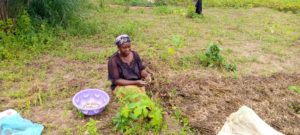

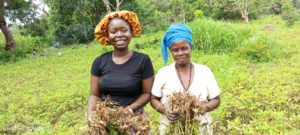

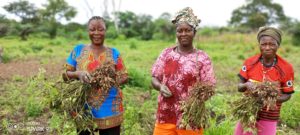
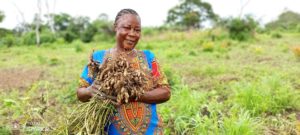
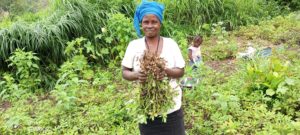



HEALTH
THE PROBLEM
According to Center for Disease Control Global Health Sierra Leone (CDC-SL) Sierra Leone has the highest maternal mortality rate in the world, and one of the highest mortality rates for children under five: out of 1,000 live births, over 13 mothers and 111 children under five die.
According to UNICEF, “The maternal mortality rate in Sierra Leone is the highest in the world with 1,360 mothers dying in every 100,000 live births. The mortality rates of neonates, infants and children under five are also amongst the highest globally at 34, 82, and 111 deaths per 1,000 live births, respectively. These staggering figures represent the real and pervasive challenges women and children face in Sierra Leone with poor healthcare practices and sub-standard and ill-equipped health care facilities.
Maternal deaths account for 36 per cent of all deaths amongst women aged 15-49 years. The leading direct causes of maternal mortality in Sierra Leone are:
- obstetric hemorrhage (46 per cent)
- hypertension (22 per cent)
- obstructed labor (21 per cent) and
- sepsis (11 per cent).
Causes of neonatal deaths are:
- prematurity (30 per cent)
- asphyxia (27 per cent)
- sepsis (23 per cent)
- pneumonia (7 per cent)
- congenital (7 per cent) and
- others (6 per cent).
Newborn conditions (29 per cent), malaria (20 per cent), acute respiratory infection (ARI) (12 per cent) and diarrheal diseases (10 per cent) are responsible for more than 70 percent of the under-five deaths. Many of these deaths are preventable if managed timely by skilled health providers”.
THE SOLUTION
To address this issue and prevent death among children under age five, we are providing free healthcare delivery services in partnership with health professionals to under five children and pregnant women and breastfeeding mothers in especially rural communities who are financially disadvantaged to see that the rate of maternal and infant mortality is reduced to 10% in Sierra Leone.
PICTURES
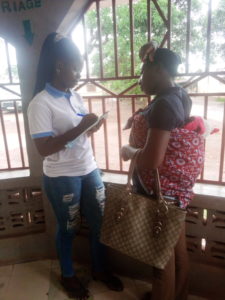
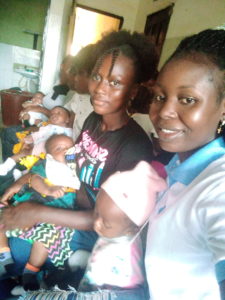
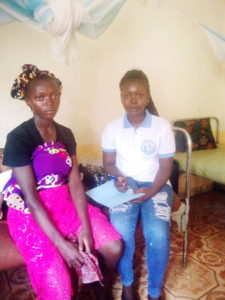

GENDER AND CLIMATE JUSTICE
THE PROBLEM
According to UNICEF in 2013, 28% of girls aged 15–19 had already begun childbearing, leaving Sierra Leone ranked 10th highest in the world for adolescent pregnancy, and nearly 3 out of every 10 girls out-of-school are excluded from education.When Ebola hit and schools closed for nine months, adolescent pregnancy spiked and girls experienced higher dropout rates as a result of pregnancy, domestic violence, and sexual abuse. According to a study by UNFPA, 14,000 teenage girls became pregnant during Ebola and, in some communities, adolescent pregnancy increased up to 65%.When schools reopened, they were banned from returning under a Government of Sierra Leone directive preventing visibly pregnant girls from attending school or taking exams.
THE SOLUTION
Our goal is to ‘Create access to social and economic opportunities towards empowering Women and Children.’ To achieve this goal, YoMSuD-SL works by mobilizing and recruiting women into self-help groups through which the women engage in various socio-economic activities and climate change mitigation and adaption strategies. As an organization, YoMSuD-SL believes that in order to reach the child, the woman as the custodian of the child has to be accessed first. The proposed project by YoMSuD-SL is championing for the empowerment of women by building their capacities and competencies. This will be achieved by conducting a three month period skills and entrepreneurship trainings which will equip them with the necessary skills and experience to manage their own businesses.
PROJECT OUTCOME
The project will empower them to be able to position themselves in strategic decision making processes that take place at varying levels in social, economic and political issues of the region and country as large. The project’s specific objectives are:
- To Increase the financial abilities of women to enable them purchase:
- food for their families,
- Educate their children (girl child focus),
- Afford better health,
- clothing and shelter for their children and
- Reduce poverty and attain improved standards of living.
- This intervention has a self-protecting mechanism in dealing with conflict situations.
TARGET BENEFICIARIES
We are targeting marginalized women, adolescents (boys and girls), and Youth for them to become responsible adults in building sustainable Communities.
WHAT WE ARE SEEKING
To undertake such project, YoMSuD – SL is looking to the following:
- Donors
- Partnership
- Finance
- Experts Coaches and Mentors
PICTURES


